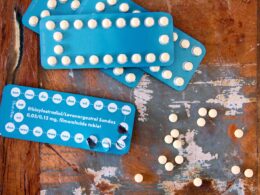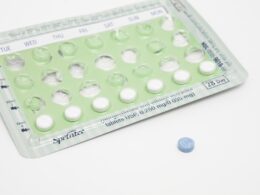There is no one-size-fits-all answer to this question, as the experience of going off birth control differs based on your specific reproductive goals and the type of birth control you used. However, there are some general rules to keep in mind:
Hormonal contraceptives work by altering hormones. This means that when they’re removed from the body, hormone levels can fluctuate, which can trigger or worsen anxiety.
Symptoms
Anxiety is a mental condition that affects mood. It’s caused by an imbalance of hormones. Sometimes, it may be improved by hormonal contraception — like the pill, patch, or ring — while other women experience worsened anxiety. However, more research is needed to establish a definitive link between hormonal birth control and anxiety.
For now, it’s best to work with your doctor and therapist to determine the root cause of your symptoms. Then, you can take steps to address them.
Many women who stop taking hormonal birth control report side effects, including acne, weight gain, headaches, heavy periods (or no period at all), spotting and mood changes. These are called “post-birth control syndrome” and can last a few weeks to a couple months.
The most common cause of post-birth control syndrome is hormone fluctuations, and it can also be due to nutrient depletions from oral contraceptive use. Estrogen increases serotonin, a neurotransmitter that can have an effect on your mood.
If you’re noticing any of these symptoms, try to eat a well-balanced diet and get enough sleep to support your body’s hormonal balance. Exercise is another great way to boost your mood. You can also try meditation or yoga. The most important thing is to remember that it takes time for your body and ovaries to start working together again.
Causes
While there’s little research completed on this subject, it’s possible that hormonal birth control can trigger mood changes in some women. It’s important to work with your family doctor and therapist when you feel anxious to help treat it.
Hormonal birth control pills contain synthetic versions of the hormones estrogen and progesterone, which can affect your mood. You’ll need to give your body time to get back to normal after stopping them. This may take a few weeks or even months depending on your body’s reaction and what type of pill you were taking.
If you’ve been taking birth control for a long time, your hormones may have become used to being stabilized. This can cause you to experience more anxiety when your body starts producing hormones on its own again.
It’s also possible that you had pre-existing anxiety symptoms that the birth control suppressed. If you still feel anxiety after your hormone levels have settled, it’s a good idea to speak to a psychiatrist about your options for treatment. There are a number of different ways to reduce your anxiety, including exercise, getting enough sleep, avoiding caffeine and alcohol, and meditating. Breaking a sweat can improve your mood, so try to make time for a quick workout each day. You can also practice mindfulness, which has been shown to reduce anxiety symptoms.
Treatment
Anxiety is a normal response to a stressful situation and can help alert you to potentially dangerous situations. However, if your anxiety is chronic or debilitating, it’s important to talk to your doctor about treatment options.
Hormonal contraceptives work by using synthetic hormones to prevent pregnancy by tricking your body into thinking that you’re pregnant, which stops ovulation. They contain either progestin or estrogen and may also suppress other hormones like testosterone, which can lead to mood changes.
The good news is, there are many treatments available for women who experience anxiety when taking hormonal birth control. If the symptoms are triggered by fluctuating hormone levels, they should ease as your hormones settle. This can take a few months if you’re on the pill or up to six months if you have an implant or are using long-lasting birth control methods, such as a contraceptive injection.
If you’re on the pill and experiencing anxiety, talk to your doctor right away. They can recommend self-help strategies and referrals to a mental health specialist to help manage your anxiety. They might suggest switching to a different type of birth control or prescribing medication, such as an antidepressant, if your anxiety is severe. You should always practice safe sex and have a backup birth control method, such as condoms or barrier methods, to protect yourself from pregnancy until the anxiety subsides.
Prevention
For some women, hormones in birth control can exacerbate or even cause their anxiety. However, there are plenty of ways to reduce or avoid this, whether you’re on hormonal birth control or not.
First, you should talk to your doctor. They’ll be most familiar with your health history and can help you understand what to expect when you stop hormonal birth control. They can also recommend a different form of birth control or help you find a nonhormonal method that works best for you.
If you’re worried about a potential pregnancy, they can also suggest a barrier method like a condom or diaphragm as backup until your menstrual cycle returns to normal. It’s also important to remember that if you get pregnant before your body has finished recovering from the last pregnancy, it increases your chances of having a premature or small baby.
The good news is that, after a few months of normal ovulation, you should be back to having regular periods. This is especially true if you were on a hormonal IUD or implant like Nexplanon or Implanon, or a monthly birth control injection (Depo-Provera). You should also let your doctor know if you’re still not getting periods after 90 days because that could mean you’re not ovulating properly.









